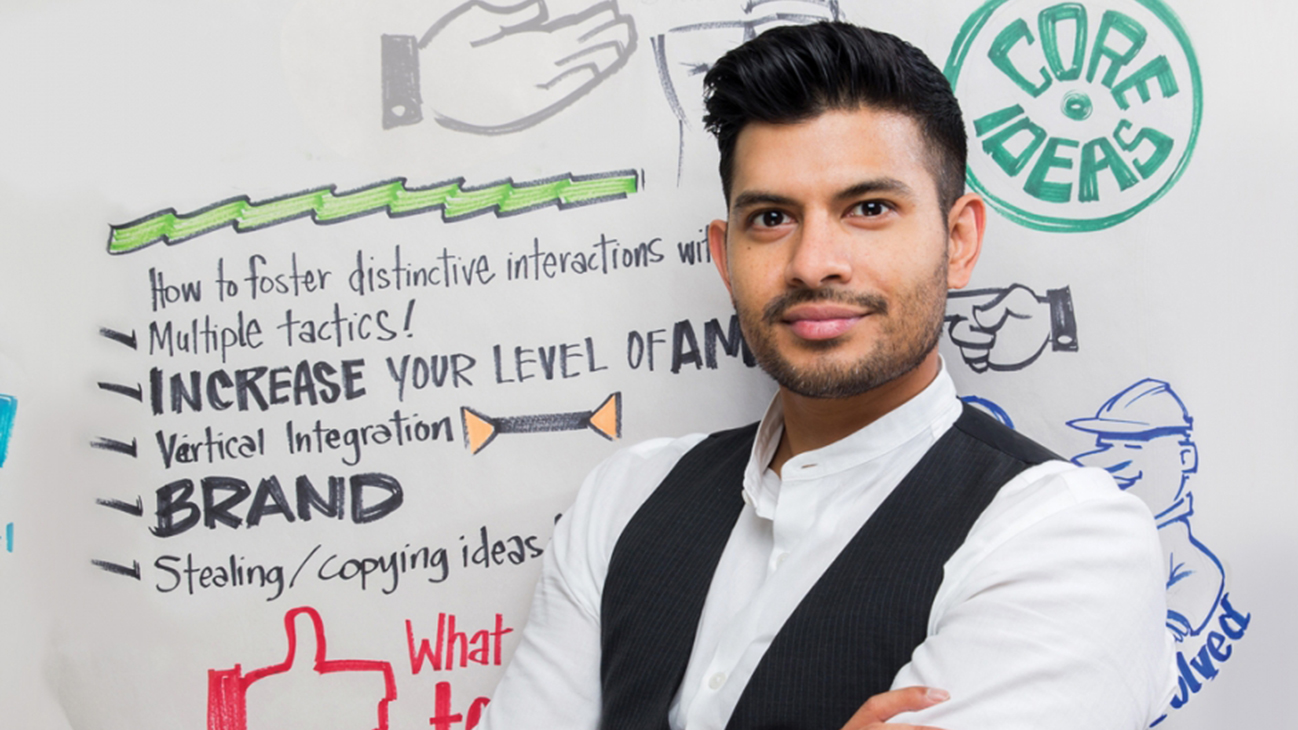Strategist and innovation expert Shawn Kanungo operates at the intersection of creativity, business and technology. The senior manager of strategy for Deloitte Digital for over 12 years has been recognized nationally and globally for his work in the innovation space. His focus is to help corporate executives to better understand and plan for the opportunities and threats associated with disruptive innovation.
In the fascinating Q&A with Forbes excerpted here, Kanungo explains exactly what he means by thinking “like a cannibal” when it comes to innovation and business:
“Disrupt” has become something of a dirty word when it comes to new companies rising in the marketplace. Apps, drones, automation, and delivery systems have all sunk stalwart companies time and again, all because they did not have the foresight to jump onboard new technology and innovation. What are some methods to avoiding these pitfalls, and to start thinking ahead?
Shawn Kanungo has been recognized globally for his work in the area of innovation. He shares his hands-on experiences through talks around the world to help leaders navigate change within this crazy digital era we’re all living in. In 2016, he was named Avenue Magazine’s top 40 under 40 list. He also co-hosts The Dip, a podcast focused on strategy, marketing and innovation. I recently interviewed Shawn for the LEADx Podcast, where we talked careers, companies, and cannibalism. (The interview below has been lightly edited for space and clarity.)
Kevin Kruse: You say that to be innovative we need to think like a cannibal. What do you mean by that?
Shawn Kanungo: Well, you know, here’s the punchline: organizations are designed to be operationally efficient and operationally effective. That’s why we had really great processes and structure and governance and 30-minute meetings in cubicles. In the industrial revolution in the industrial age, people would look at our organizations today and they would say, “Wow. You ran these organizations like a well-oiled machine. You guys are super efficient.” In today’s world, we haven’t really organized. We haven’t really designed our organizations to evolve, to rethink our products, our services, and how we deliver information to our customers. We haven’t designed our organizations to evolve. This idea of thinking like a cannibal basically means not to be so romantic about what’s working today and continuously thinking about how will you disrupt what’s working today in order to build a brighter in the future tomorrow.
A really simple example is Netflix. It’s something that everybody has. Reed Hastings, the CEO of Netflix, one of the hardest decisions that he ever had to make as the CEO of Netflix is when they were going from the DVD to streaming. Netflix was never sold on DVDs as ‘our ticket.’ We’re going to live and die on DVDs. The hardest decision that he had to make was when he literally had to kick out his DVD team from the main management meeting that he had because the DVD team wasn’t open to this whole idea of streaming. They weren’t open to all this innovation and essentially, what would disrupt their business. At the time, the DVD team was making all the revenue and profit for the organization, and Reed had to kick them out of the meeting because they weren’t open to it.
If you look at organizations today, many organizations have been around for 40, 50, 60 years, essentially doing the same thing. Today, technology is on an exponential scale. Now, you actually have to rethink your organization. You actually have to rethink how you do things because the world has changed. For me, I’m an innovation strategist, and my job requires me to go into organizations to challenge the status quo. My job is to show organizations how I would take them out of business before somebody else does. You know, this is what people struggle with. They spend all their lives working on this business and working on the products that they’re working on, not knowing that maybe that might not be relevant to the future. It’s actually a hard thing to stomach.
Read the full interview here.

